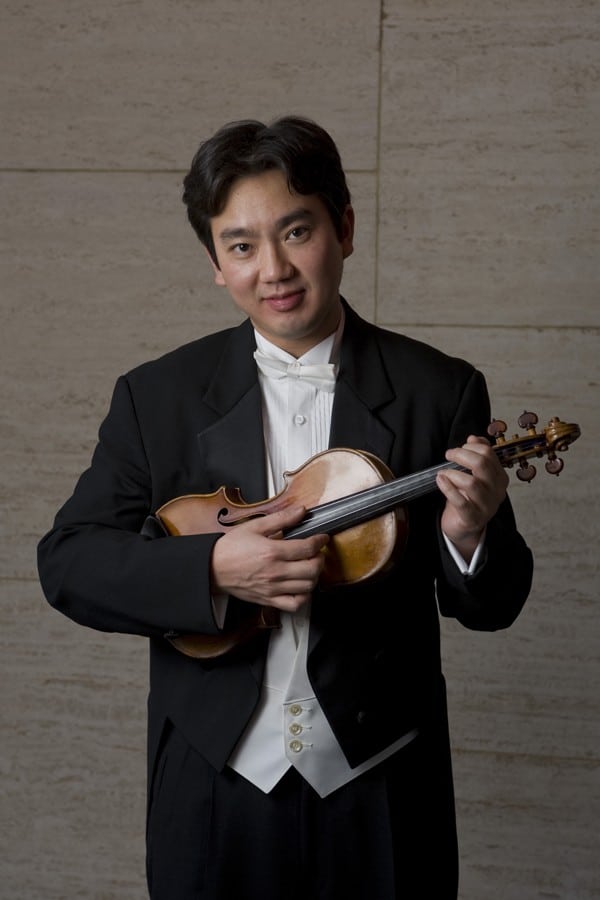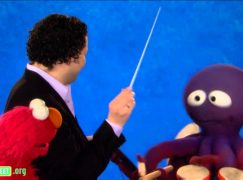Six US concertmasters earn more than half a million dollars
mainThe earnings chart compiled by Drew McManus from 2016/17 returns show the rich getting ever richer.

New York Philharmonic: $622,421 – Frank Huang
San Francisco Symphony: $589,272 – Alexander Barantschik
Cleveland Orchestra: $579,030 – William Preucil
Chicago Symphony: $554,756
Los Angeles Philharmonic: $539,739
Boston Symphony: $532,036
Philadelphia Orchestra: $438,253
National Symphony: $401,800
Saint Louis Symphony: $304,818
Cincinnati Symphony: $293,423






This is out of date: Cleveland fired William Preucil last October. https://www.npr.org/2018/10/24/660248392/cleveland-orchestra-fires-two-leading-musicians-after-sexual-misconduct-investig
These figures are – as clearly stated – for 2016/17
And given the quality of Preucil’s playing at the end, about $529,030 too much.
Interestingly, the orchestra has yet to appoint Preucil’s successor. Peter Otto has been de facto filling the role, but still carries the title “First Associate Concertmaster”. Otto is a superb violinist, both respected and well-liked (a rare combination) by his colleagues. Why has he not officially been made concertmaster? Does the orchestra expect to find someone better? Doubtful.
The orchestra will not find a better concertmaster than Peter Otto. FWM will definitely go on an Easter Egg Hunt for someone “sexier” or more exotic (although Peter is quite attractive I must say). And kudos to Jung-Min Amy Lee. She and Jessica Lee are da bomb.
The Cleveland vacancy is curious. Have they held auditions or even had guest concertmasters yet? I don’t think so. And if someone else is selected, will Mr. Otto look for another position? Last time, Martin Chalifour was acting concertmaster, and he subsequently won the prestigious LA Phil concertmaster position after Preucil came on board. The associate/assistant concertmaster musicians have often been hard to keep in Cleveland, probably because they are so good that they are in demand.
Preucil is probably spending money rather than making money right now.
I wonder how many traveling soloists earn as much – after management fees, travel expenses, etc. – as those at the top of this list. Plus whatever price you pay for being away from home a lot. Not many, I suspect.
Your suspicion is correct.
The top violin soloists earn similar amounts. The big downside to a solo career is the constant travelling.
In the past record sales would have made the top soloists better off, but these days few artists make much from recordings anymore.
As a musician I find this “rich get richer”comment deeply offensive. The concertmaster position is crucial artistically to an orchestra. These people have invested countless hours and training for years to reach the peak of their profession and make a fraction of what is made in so many other professional services, for a doctor these salaries are barely cab fare. And you lampoon them as rich.
No different though than the norm of ill-informed, insensitive commentary I’ve seen on this sight over and over again when you print stories on orchestras and their finances without any regard or investigative interest in the actual facts.
Not disagreeing with you, but how many doctors do you know make over half a million in salary, even enough to call such pay cab fare? Maybe medical school professors and surgeons, but definitely not your hospital residents and GPs.
In New York City…MANY (sad to say).
Not many medical doctors make that much money, nor many other professionals in any discipline.
Here in the U.K. doctors do not make a lot of money they have to have insurance which is very high. And pay a lot of tax
A doctor would have to be a super-specialist to be making this kind of yearly income (500k +). The salaries mentioned above would be middle echelon hedge-fund manager levels. And please consider this: most likely 5-10 other people would have been considered for the positions. OK, they didn’t get the gig. Are they making anywhere near this level wherever they are playing now? Are they that much less capable than the person who did get the gig? Those of us who are professional musicians don’t begrudge those who are making these kind of salaries. We just wonder why one person in one orchestra is making 1/20 of the entire operating budget for any number of regional orchestras.
The concert master position is not as crucial musically as you make it out to be. Aside from bowing directions and giving the A tune up signal.
most are failed soloists for various reasons and
have found a home in the orchestra .No self respecting violinist ever sets out to be a concertmaster and the countless hours of work
towards being the next Paganini often does not
come to fruition and if lucky they become the
concertmaster of an elite orchestra playing the same works over and over until retirement.Some get
a good salary some don’t.
There’s nothing preventing a concertmaster from doing solos with his/her ensemble in addition to guest appearances with other groups. And they may also be part of chamber ensembles made up of other orchestra members. So, they may actually have their cake and eat it too. I find your comment to be a cliche of some version of what orchestral life is supposed to be like. I know many concertmasters and they have a lot of self-respect and also a lot of respect for their place in the musical life of a community.
I couldn’t disagree with you more. MANY violinists aspire to become concertmasters, as they are well aware of the many career tradeoffs between solo work and orchestra work and they choose to aim at an endeavor that allows them to play the great concertmaster solos with great orchestras and conductors, play concerti with that orchestra, play chamber music with players that won auditions into those great orchestras, teach at conservatories and universities that prepare the next generation and NOT HAVE TO TRAVEL anywhere near as much as an aspiring or successful soloist. It is a very attractive life if you’re good enough and lucky enough to win such a position. You get to work in a collegial endeavor in a co-operative art form for the greater good. Attempting to cast orchestra work in a great orchestra as a fall back for anyone is to try to cast an apex job in an astoundingly difficult field as somehow beneath someone’s dignity. It’s insulting and ignorant of the realities.
Baloney and you know it .
Dear Jeremy,
I was just about to post a reply to Wladek when I read your reply – you said everything I was about to, and you put it better than I ever could have.
BTW, I love your work with the SFS. I have often heard your excellent music-making. Evviva!
What crap. Not everyone wants to be a soloist: it really doesn’t pay much better than being concertmaster at an elite orchestra, and there is the constant travelling (and no job security, unlike having an orchestra position). More than a few young musicians couldn’t wait to give up soloing for a concertmaster job.
Besides, most concertmasters get some opportunities to do some solo work either with their home orchestra or elsewhere. And to play some chamber pieces. Playing in an orchestra the music is way more varied and interesting than solo work (where they have to play the same 6-8 concerto pieces their entire career — fantastically boring after a while).
What hogwash !!!
I’m sorry; does anyone else think something is out of balance? These are, obviously, very talented musicians and hopefully, leaders of their ensembles. But I think this is an example of Pareto’s Principle going on here. That is, 80% of the resources are going to 20% of the recipients. Please, PLEASE, don’t get me wrong. I’m not begrudging these concertmasters for getting these salaries. I’m just asking, wondering, if concentrating this wealth in these urban areas is good for the dissemination of art/classical music. (And, give or take a half-million, the total of these salaries must be in the neighborhood of what Baltimore was supposed to get from the state to stay viable. They are now on-strike.) I just played a festival and many of my colleagues stated that their ensembles are always of the brink on not meeting payroll, let alone growing. I understand that the NY Phil is a NY entity, But man, there has to be a way to distribute the available cash so that the art form stays healthy across the spectrum.
Baltimore Symphony is not on strike right now. BSO musicians have been locked out by their management.
Thank you for the clarification. You are correct. I wanted to illustrate the imbalance of a major American orchestra being in financial straits while 10 concertmasters, also from large orchestras, make close to the amount that was supposed to have been directed towards the BSO.
Good on them!! Well done.